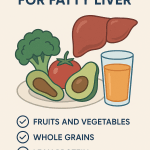In an age overwhelmed by extreme food trends and restrictive meal plans, one dietary approach continues to shine with enduring credibility, backed by decades of scientific research and cultural tradition. The Mediterranean Diet isn’t just a way of eating—it’s a lifestyle. A lifestyle that combines delicious, whole foods with the joy of communal meals, physical activity, and mindful living.
Praised by doctors, nutritionists, and wellness enthusiasts across the globe, the Mediterranean diet is consistently ranked as one of the healthiest diets in the world. It’s associated with a longer life span, reduced risk of chronic disease, and improved quality of life. The beauty of this approach lies in its simplicity, flexibility, and sustainability.
But what exactly is the Mediterranean diet? Why has it captured the attention of health experts and food lovers alike? In this comprehensive guide, you’ll explore everything from the core principles and health benefits to meal planning strategies and cultural insights—all to help you embrace the Mediterranean way of life.
What Is the Mediterranean Diet?
The Mediterranean diet is inspired by the traditional eating patterns of countries bordering the Mediterranean Sea, including Greece, Italy, southern France, and parts of Spain and the Middle East. It emphasizes:
- Fresh fruits and vegetables
- Whole grains
- Legumes and nuts
- Healthy fats, especially olive oil
- Moderate consumption of fish and poultry
- Minimal red meat and sugar
- Red wine in moderation (optional)
- Daily physical activity and social connection
This diet isn’t about counting calories or cutting out entire food groups. It’s about nourishing the body with wholesome, flavorful foods and aligning eating habits with nature, seasonality, and cultural rhythm.
The Origins and Cultural Significance
The Mediterranean diet isn’t a modern invention. It’s a reflection of generational wisdom passed down through family kitchens. In the 1960s, researchers began to observe that people in Mediterranean regions experienced lower rates of heart disease and higher life expectancy than their Western counterparts.
This led to the famous “Seven Countries Study,” which laid the foundation for what we now call the Mediterranean Diet. Today, it is recognized not just as a healthy diet but as a UNESCO Intangible Cultural Heritage of Humanity, highlighting its impact on both health and community.
Core Components of the Mediterranean Diet
Fruits and Vegetables
Fresh, seasonal produce forms the foundation of every meal in the Mediterranean diet. These foods are rich in fiber, antioxidants, and anti-inflammatory compounds that support overall health.
Tomatoes, leafy greens, onions, eggplants, cucumbers, zucchini, peppers, citrus fruits, apples, grapes, figs, and melons are Mediterranean staples.
Whole Grains
Whole, minimally processed grains provide complex carbohydrates and essential nutrients.
Examples include whole wheat, bulgur, farro, barley, brown rice, polenta, and oats.
Legumes and Beans
High in protein, fiber, and minerals, legumes offer a plant-based protein source that is both filling and heart-healthy.
Common choices are lentils, chickpeas, black beans, fava beans, white beans, and peas.
Healthy Fats
Olive oil is the cornerstone fat of the Mediterranean diet. Rich in monounsaturated fats and antioxidants, it supports cardiovascular health and reduces inflammation.
Other sources include avocados, olives, nuts (especially almonds and walnuts), and seeds.
Seafood and Lean Proteins
Fish, especially oily fish like salmon, sardines, mackerel, and anchovies, are recommended at least twice a week. These provide omega-3 fatty acids that support brain and heart function.
Poultry, eggs, and dairy (especially fermented varieties like Greek yogurt or aged cheese) are eaten in moderation.
Herbs and Spices
Instead of salt, Mediterranean cooking uses herbs like oregano, thyme, basil, rosemary, parsley, and mint for flavor and health benefits.
Red Wine (Optional)
In many Mediterranean cultures, moderate red wine is enjoyed with meals, often in social settings. The polyphenols in red wine, such as resveratrol, may offer cardiovascular benefits when consumed responsibly.
Limited Processed Foods
Packaged snacks, refined sugars, processed meats, and artificial additives are rare in traditional Mediterranean kitchens. The focus remains on home-cooked meals made from whole ingredients.
Health Benefits of the Mediterranean Diet
Heart Health
The Mediterranean diet is famous for its role in reducing heart disease. Studies show that it:
- Lowers LDL (bad) cholesterol
- Reduces blood pressure
- Improves arterial function
- Decreases the risk of heart attacks and strokes
In fact, the PREDIMED study demonstrated a 30% reduction in cardiovascular events among those following a Mediterranean dietary pattern.
Weight Management
Although not designed for weight loss, the Mediterranean diet naturally promotes a healthy weight by emphasizing satiating foods and mindful eating habits. Because it’s not restrictive, it’s more sustainable in the long run.
Diabetes Prevention and Blood Sugar Control
Whole grains, legumes, and healthy fats help regulate blood sugar and improve insulin sensitivity. Research indicates that the Mediterranean diet can reduce the risk of developing type 2 diabetes by up to 83% in high-risk individuals.
Cognitive Health
The antioxidants and omega-3s in the Mediterranean diet support brain health and may reduce the risk of cognitive decline and Alzheimer’s disease. The MIND diet, a variation of the Mediterranean diet, is specifically focused on neuroprotection.
Longevity
Populations in Mediterranean regions are among the longest-living in the world. The combination of nutrient-dense food, physical activity, social engagement, and reduced stress contributes to greater life expectancy and quality of life.
Reduced Inflammation
Chronic inflammation is linked to many modern diseases. The Mediterranean diet’s rich supply of anti-inflammatory foods helps lower systemic inflammation and supports immune function.
What a Typical Mediterranean Day Looks Like
Breakfast:
Greek yogurt with honey, walnuts, and seasonal berries
Herbal tea or black coffee
Mid-Morning Snack:
A handful of almonds or fresh figs
Lunch:
Grilled chicken or tuna over a bed of mixed greens with olive oil and lemon dressing
Whole grain bread or farro salad
A small piece of cheese
Afternoon Snack:
Sliced cucumber with hummus or a boiled egg
Dinner:
Baked salmon with roasted vegetables
Quinoa or lentils on the side
A glass of red wine (optional)
Dessert:
Fresh fruit or a small square of dark chocolate
Practical Tips for Embracing the Mediterranean Lifestyle
Cook More at Home
Prioritize fresh, seasonal ingredients and keep your meals simple. Grilled fish with lemon and herbs, a colorful salad, and olive oil-drizzled vegetables are all easy to prepare.
Shop Like a Local
Visit farmers markets when possible. Choose local and seasonal produce, fresh herbs, wild-caught fish, and quality olive oil.
Focus on Community
Share meals with family and friends. Social connection enhances digestion, reduces stress, and supports emotional health.
Move Naturally
In Mediterranean regions, physical activity isn’t necessarily done in the gym—it’s integrated into daily life. Walking, gardening, dancing, and outdoor work keep the body moving.
Don’t Fear Fat
Olive oil, nuts, and seeds are your friends. Fat is not the enemy when it comes from natural, unprocessed sources.
Limit Meat, Don’t Eliminate It
You don’t have to go vegetarian, but shift your protein intake toward seafood, legumes, and occasional poultry. Reserve red meat for special occasions.
Make Meals an Experience
Slow down, savor your food, and avoid eating on the go. Eating mindfully enhances satiety and satisfaction.
Mediterranean Diet for Different Lifestyles
For busy professionals: Prepare big-batch meals like lentil soup or grilled vegetable trays to save time.
For families: Get kids involved in cooking. Mediterranean meals are colorful and flavorful—great for developing healthy food habits.
For seniors: This diet supports bone health, mental clarity, and heart function—making it ideal for graceful aging.
For athletes: Carbohydrates from grains, legumes, and fruits provide excellent fuel, while lean proteins and healthy fats support recovery.
Addressing Common Myths
Myth: The Mediterranean diet is expensive.
Truth: Staples like beans, rice, eggs, and seasonal vegetables are affordable. Quality olive oil and fresh fish are investments in health, not luxury items.
Myth: It’s just another fad.
Truth: It’s rooted in centuries-old traditions and backed by robust scientific evidence.
Myth: Wine is required.
Truth: While wine is part of the culture, it’s optional. The health benefits come primarily from the food and lifestyle.
Myth: It’s hard to follow.
Truth: It’s one of the easiest diets to adopt. No counting, no strict rules—just a shift toward real, whole foods.
Sustainability and Environmental Impact
The Mediterranean diet also supports environmental sustainability. It emphasizes:
- Plant-based meals over meat-heavy dishes
- Seasonal, locally-sourced foods
- Reduced food waste
- Less reliance on processed and packaged goods
Eating this way not only helps you but also nurtures the planet.
FAQs
Absolutely. It already includes a wide range of plant-based proteins like legumes, whole grains, nuts, and seeds.
Yes. While it’s not a strict weight-loss diet, many people naturally lose weight due to increased fiber and satiety.
Most people experience improvements in energy, digestion, and mood within a few weeks. Long-term benefits include reduced disease risk and improved biomarkers.
Yes, but in moderation. Choose high-quality sources like plain yogurt and aged cheeses.
Yes, it’s one of the most recommended diets for diabetes management due to its effect on blood sugar control.
While fish is encouraged, you can still follow a Mediterranean lifestyle by focusing on legumes, nuts, and other healthy proteins.








Post a comment